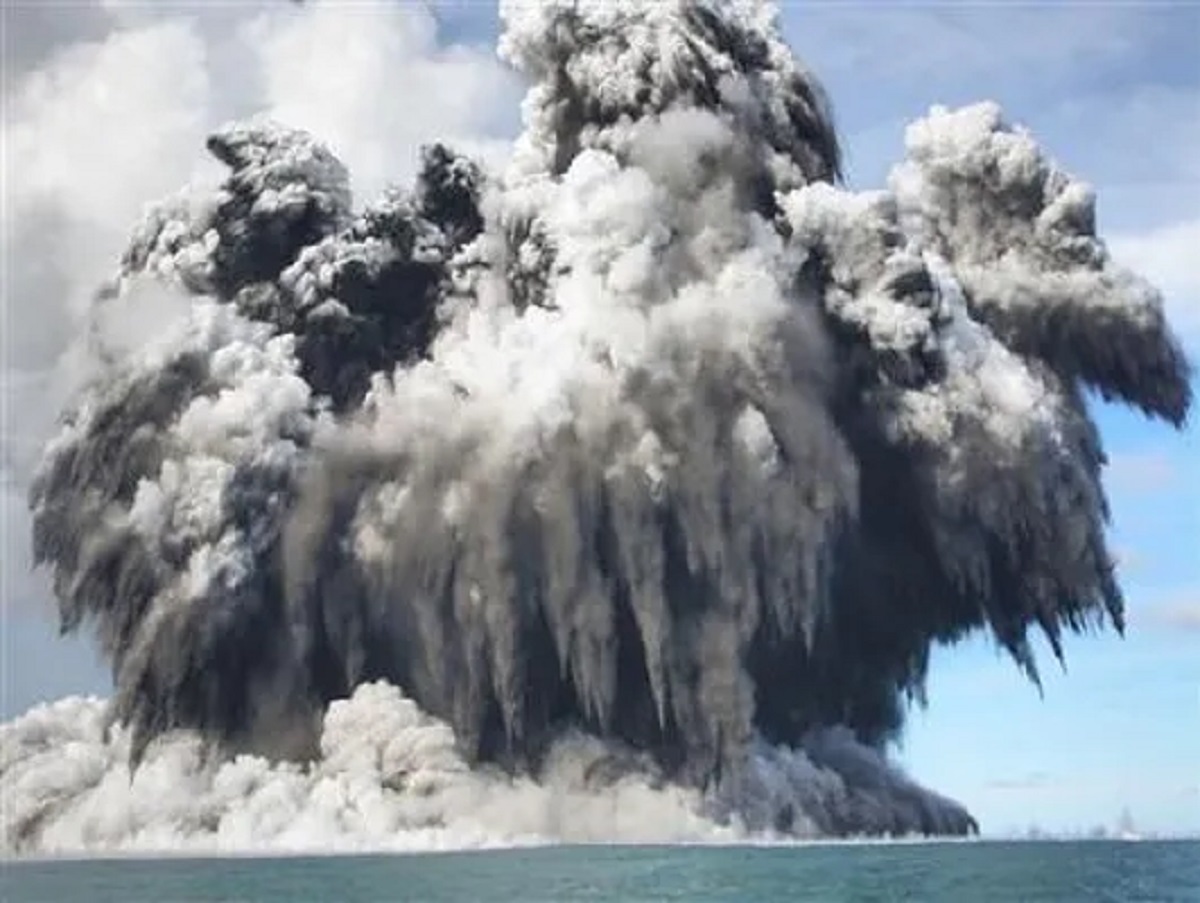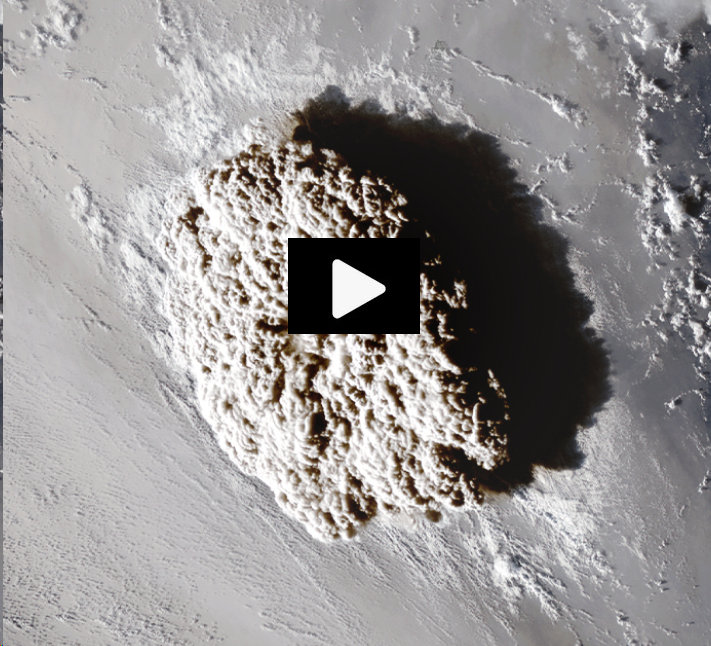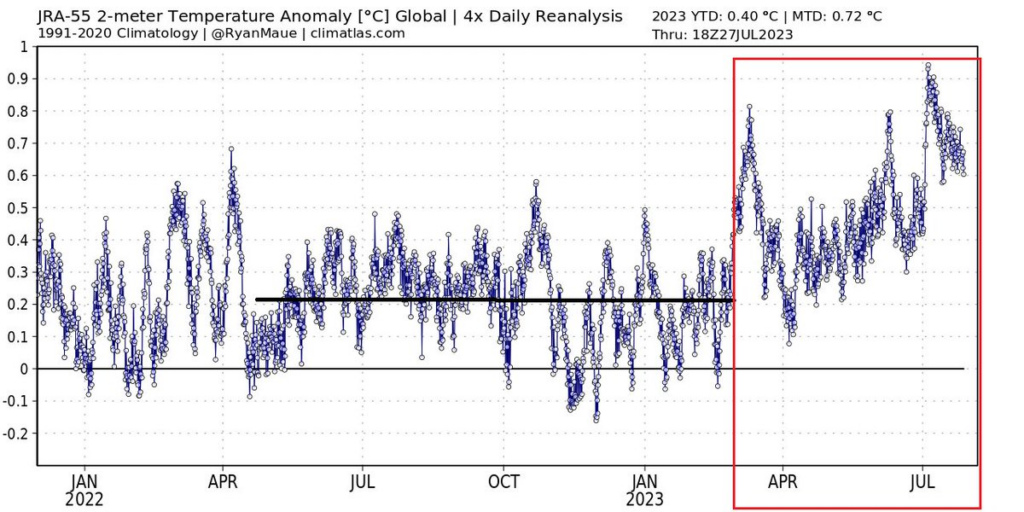Wroclaw/Poland 08/08/2023
Entire blog as a free PDF eBook.
A year and a half has passed since a massive volcanic eruption on the island of Hunga-Tonga in the Pacific Ocean.
This looping video shows an umbrella cloud created by the underwater eruption of the Hunga Tonga-Hunga Ha’apai volcano on January 15, 2022. The GOES-17 satellite captured the series of images, which also show crescent-shaped shockwaves and lightning strikes. The amount of water in the stratosphere increased by 13%, and aerosols – 5 times. Source.
The underwater eruption of the Hunga-Tonga volcano ejected huge amounts of volcanic products, mainly water, into the Earth’s stratosphere – up to a height of 58 km. This is how NASA describes: Water vapor is Earth’s most abundant greenhouse gas. It’s responsible for about half of Earth’s greenhouse effect — the process that occurs when gases in Earth’s atmosphere trap the Sun’s heat. Greenhouse gases keep our planet livable.
dr Ryan Maue, meteorologist and chief scientist at the National Oceanic and Atmospheric Administration, explains: Everything was going fine until mid-March 2023, and then a dramatic 1°C warming spike in a matter of 2-weeks raised global temperatures to the record levels we are at today. dr Maue points to a polar vortex in the southern hemisphere influenced by the Hunga-Tonga eruption and warmer temperatures in the North Atlantic. According to the meteorologist, water vapor in the stratosphere will continue to affect the climate.
The human influence on climate change is – in contrast to media megalomania and the actual pollution of the natural environment – insignificant. Volcanoes clearly have the greatest impact on Earth’s global temperature. That’s why I’m proposing a climate tax on volcanoes…

We’re all waiting for you.
Author of the article: Marek Wojcik


